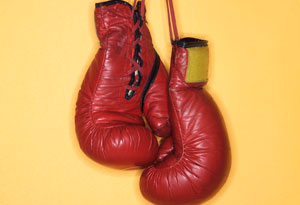"You Just Have to Dust Yourself Off and Move On"

Photo: Thinkstock
Powerful. Not powerful. Up. Down. Up again. These women could teach Humpty Dumpty a few tricks. They tell Robert Kolker what they learned along the way.
Bonnie Fuller:When I'm a magazine editor, I'm in the driver's seat. There's power in that. But being between jobs was a difficult time [Fuller was asked to resign from Glamour magazine]. You're anxious, and you're dependent on other people, and you're not used to that. I had to give myself pep talks—not so much to maintain confidence, because I knew what I could do, but it was hard not to be doing it. The press would report on speculation about what I might do next. I've read critical things about me, and I may not have been thrilled. Bottom line, there are way more important things in life than what's written about you—like your family and how you're really doing. I'm never confused about the difference between what my real world is and what's in the press.
It's also important to have personal cheerleaders—friends, colleagues, past employees. A lot of people will give you advice; you decide what you can live with. People told me, "Oh, relax; take three months off. Something will come to you." But that wasn't for me. I've never waited for things to happen. I needed to be proactive; I was calling people right away. I needed to feel like I was getting on with my journey. I had to believe there would be something wonderful at the end of it. And there was. I ended up in a completely unexpected place, doing something I'm totally in love with.
Geraldine Ferraro:
My mother often said to me, "There are some things you're going to try that aren't going to work, and when that happens, you just have to dust yourself off and move on." She did that her entire life: Her father had a stroke and she had to leave school at 13. She got married and lost a twin at birth—a blue baby—and another child to an automobile accident. How do you start over after that? Then my father died when I was eight. At 39, my mother was left a widow and didn't have a clue. She went to work and made sure my brother and I got an education.
When I first ran for Congress, I was stunned by the negative campaigning. In my 1984 vice presidential campaign, the same vicious stuff happened. That was terrible, but you get past it. I've just taken my mother's philosophy and applied it to everything I do.
Betsy Carter:
In the middle of turmoil, you know who your friends are. I don't shy away from telling people when bad things happen. You find people who share their experiences, and you don't feel so alone. Or you get those who say, "Well, that's not so bad." And that helps, too.
When New York Woman folded, I was unemployed for the first time [Carter was the magazine's founding editor]. I learned to be more self-sufficient. I learned I could make a living without coming into an office. I'm writing a novel now: Some days I feel like I'm a big fraud; other days, it's the greatest thing ever. But over time, I've learned not to beat myself up, even if things don't work out. If I tried my best, I have to give myself some credit.
Donna Hanover:
My work has always been public, as a journalist and as an actress, even before becoming first lady of New York City [Hanover was married to former mayor Rudy Giuliani]. I've always been at ease with people being curious. But with all the publicity of the last few years, I've learned it's important to laugh at misperceptions people have about me. And when I've felt judgment from others, I've thought, If something is good for your children and you can keep a sense of humor about it with your friends, then stay the course. I knew I was adventurous and independent, but I think now I've discovered courage in myself I didn't know was there.
Come Back From Any Setback



